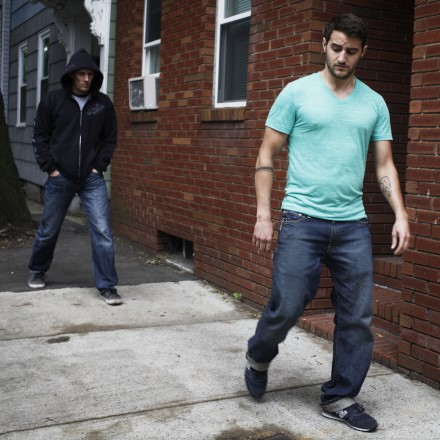Victimology & Violent Crimes

Victimology Articles
- Re-Victimization
- Repeat Victimization
- Four Theories of Victimization
- Repeat & Near-Repeat Victimization in Burglaries
- Victim Blaming
- Further Studies In Victim Vulnerability
All Criminology Articles
What Is Victimology?
Victimology is the study of those who have been the victims of crime. This includes the psychological and emotional effects of being victimized i.e., trauma, and the effects of their interactions with the Criminal Justice System (CJS), including their treatment by law-enforcement and the legal process (where victims are largely represented by others, and have few options to directly represent themselves other than when able to make a victim-impact statement at the time of sentencing. Victimology is classified by Mendelsohn as a discipline in its own right and as a sub-branch of Criminology by von Hentig.
Historically, there was a period when victims largely “disappeared” from Criminology and the Criminal Justice System. Originally in Feudal times, an individual would bring their own case against another person(s), to a Lord, or somebody acting as a judge, to hear and decide their case. However, with the creation of the modern criminal justice system, where they are represented by a prosecutor/lawyer, their role is often that of a “witness” to their own crime, and rarely do they get heard as a victim. What brought victims once more to the front both socially, publicly, and academically was an interest in how victims were perceived – especially by law-enforcement when it came to victims/survivors of rape and sexual assault. Up until the late 1980’s there was a general view that those who’d been sexually victimized were in some way complicit or even responsible for their own assaults, with questions such as, “What were you wearing?” being commonly asked, with the implication that if somebody was provocatively dressed, they shouldn’t have been surprised that they were targeted etc. A large part of this attitude of “Victim Blaming” can be traced back to a study of nearly 600 homicides in Philadelphia, during the 1950’s by Martin Wolfgang, where it was found that over 25% of those killed had in fact initiated the confrontation - usually over a trivial matter - with their killer. This led to Wolfgang coining the term “Victim Precipitation”. Unfortunately, the results/conclusions of this one study of fatal street arguments/confrontations took hold in law-enforcement circles with “Victim Blaming”/Victim Precipitation” starting to become a normalized attitude/perspective. This viewpoint was reinforced by Amir (1971), whose research into victims/survivors of sexual assault, considered the “bad reputation” of some of those who’d been victimized.
Other concepts such as “Victim Facilitation”, look at the way individuals who are victimized – although not responsible or to blame for their victimization – may inadvertently facilitate a crime against themselves e.g., the home-owner who leaves a window open, that a burglar uses to gain access to their house, is not to blame for the fact that their house was broken into, however by leaving a window open they have helped “facilitate” the crime. The issue with victim facilitation is that it can be difficult to determine what is a facilitator, without assigning some kind of blame and responsibility, and this is where it is important to remove judgment. However, without recognizing what facilitates certain crime, such as leaving a window open, or having high value goods visible in a parked car etc., it is impossible to look at ways to prevent crime. It is also important not to over ascribe victim facilitation as a reason for crime and offending, and not see facilitation as the reason that a crime was committed.
References
Amir (1971). Patterns in Forcible Rape. Chicago, IL: University of Chicago Press
Block, C. R., & Block, R. (1991). Beginning with Wolfgang: An agenda for Homicide Research. Journal of Crime and Justice 14(2): 31-70
Miers, D. (1989). Positivist Victimology: A Critique. International Review of Victimology 1(1): 3-22.